If you haven’t finished The Fall Part 1 you should probably know that The Fall Part 2: Unbound is a direct continuation from the events that unfold at the end of Part 1. Fortunately the opening doesn’t tread old ground and there is a ‘previously on…’ recap to get you up to speed, so although you can jump straight in with Unbound you will have a better time if you have a reasonable understanding of A.R.I.D and her primary motivation.
The Fall Part 2: Unbound is a side-scrolling point-and-click adventure with minimal Metroidvania elements to keep you on your toes. You play as A.R.I.D, a rogue AI who used to inhabit a combat suit but who now finds herself connected (via her decapitated head) to The Network. From here you try to return to your lifeless suit but a sinister operative known only as The User is preventing you from doing so. Fearing the return to your suit will kill you, you enter The Network to identify, track down and destroy The User.
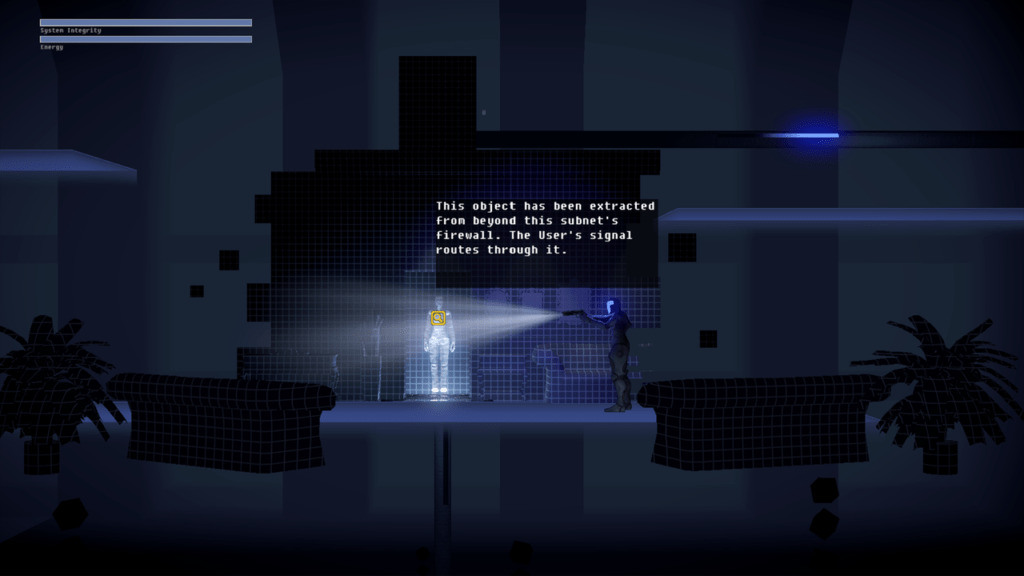
There are 2 distinct locations you have access to: The Network, which is an intangible projection of digital information projected from A.R.I.D’s mind; and the Real World, which you can only access by hacking into other robots. The Network, which is basically the Internet as a virtual space, allows you to locate access points to possess other robots who might be able to lead you to The User. It is also inside The Network where you will have to fight off parasitic enemies with your trusty side-arm. The Real World is where you do most of the puzzle-solving by sitting inside another robot’s head and bossing them about. They’re pretty loyal to their programming so it is up to you to manipulate their surroundings and to find loop holes in their understanding to get the desired results.
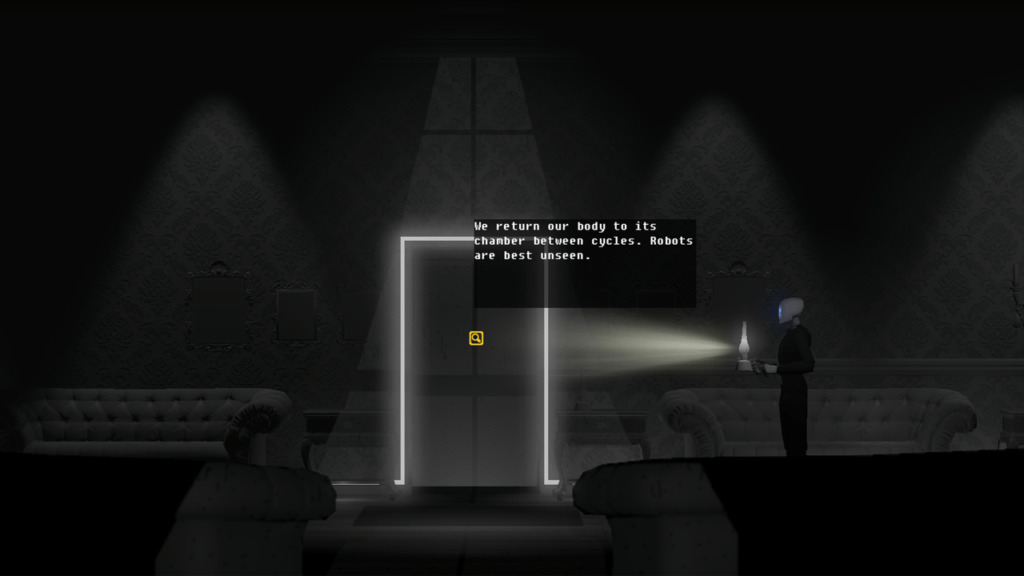
There are three robots you can control: Butler, One and Companion. They each have distinct personalities and skills based on the roles they were built for, and this allows you to approach the philosophical questions pondered throughout Unbound in multiple ways without it becoming stale. Butler is objective and states facts, and is obsessed with order and routine; One has found an identity and appreciates what separates himself from everyone else; and Companion is a sex-robot who is capable of empathy and reading human social cues. Their environments look and feel unique to them, and colour is creatively used to differentiate them from one another – like the Wachowski’s did in The Matrix.
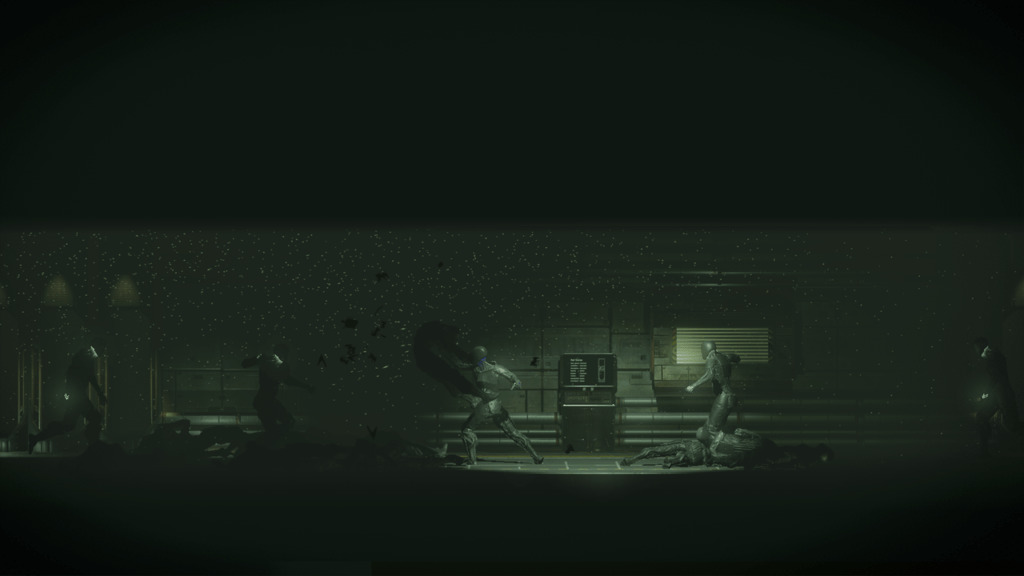
Unbound’s greatest achievement is in its ability to tell a thought-provoking story, and by having four AI characters it is able to dig deep and doesn’t have to cut corners, and this genuinely left its impression on me. The same can’t be said for the gameplay though. It doesn’t necessarily take a back seat to the story but at times it doesn’t feel like the priority. It’s not as fresh or as satisfying as it could be.
There are two forms of play: Investigating and Combat. The world is littered with ‘magnifying glasses’ and when A.R.I.D shines her torch on one of these information nodes she can interact with it. Most of them act as a device to contextualise the setting and the events of Unbound. They can all be interacted with but only so it adds a level of difficulty to stop you from only interacting with the relevant ones. This is smart as it doesn’t make the game too easy and it adds another layer of depth to what is already a deep trifle. However, mid-way through the game the interactive points become so numerous that A.R.I.D’s cone of light struggles to target any of them accurately.
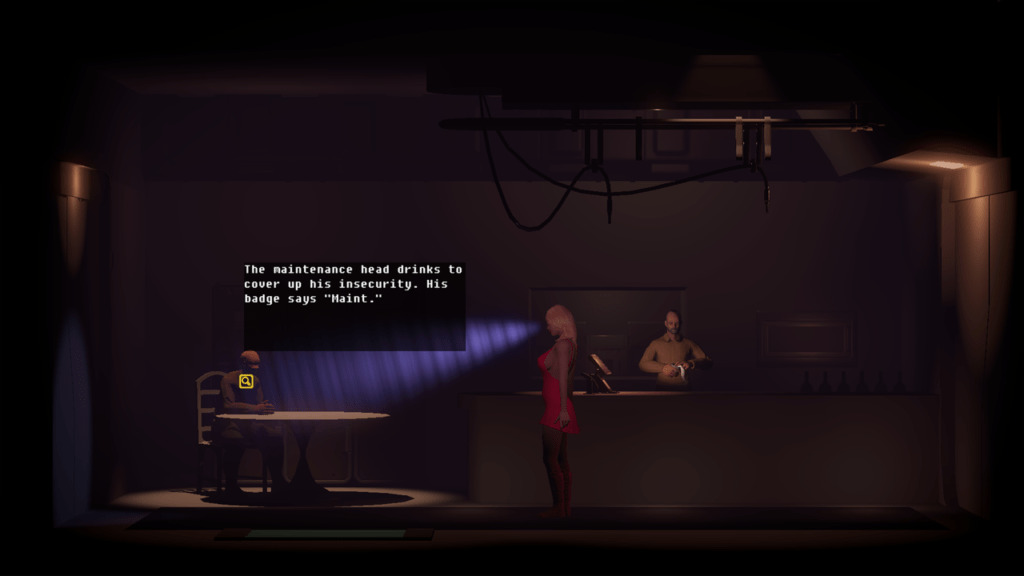
Combat is rudimentary but isn’t intuitive. Even though the controls aren’t complicated and don’t change I constantly found myself pressing the wrong buttons. It’s not fair to blame Unbound for that but if the controls couldn’t be burned into my brain after several hours of play that has to say something about the configuration. I can’t quite put my finger on why but the combat felt unpolished. I don’t feel like the shooting gallery parts were shoe-horned in for variety but I do feel like it’s a precursor to what we might see in The Fall Part 3. It’s infuriating because there are elements of the Metroidvania genre here but it’s not in the gunplay. Fighting off monsters is the bread-and-butter of most games so I’m not sure why this component isn’t up to scratch. There’s also a terrible stamina bar that depletes every time you jump and shoot, so the opportunity to pull off some bad-ass traversal while pinging bullets all over the place is impossible. You will be able to cower in the corner and get crushed to death though, so if that’s your thing you’re in for a treat.
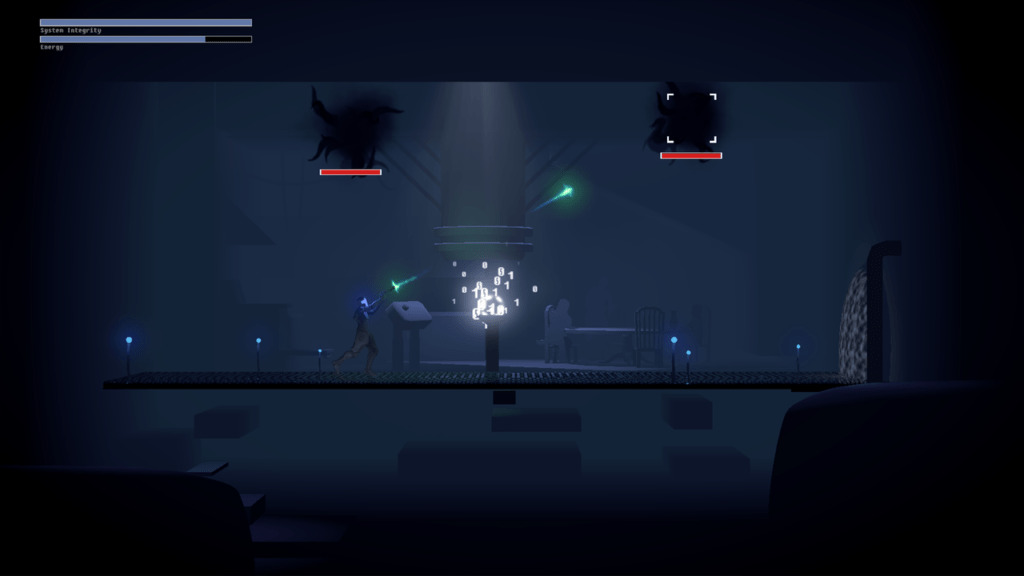
I feel torn towards Unbound because the first 4 hours were a real joy to play but in Act 2 the difficulty and enjoyment took a real nose-dive, and the finale felt like an illogical chore that I unwillingly pushed through. It’s hard to express why without going into detail, so I hope my feelings linger with you until you reach the mid-point, and maybe then you will fully grasp what I mean. Just know that the latter half of Unbound felt tedious, nonsensical and asked me to perform actions that spit in the face of conformity.
The Fall Part 2: Unbound is an intriguing sci-fi story that explores concepts of artificial intelligence, the human condition, one’s identity and their purpose in life. It’s great to see these philosophical questions being raised and challenged, especially from the perspective of four robots. The game, however, is just a vehicle to drive the story home and, much like The Fall: Part 1, it plays second fiddle to the deep questions it competently explores. It’s a shame the game mechanics aren’t as polished or as interesting as the plot because that’s the only thing holding it back from being a truly incredible game.
VERDICT
Should you play it? Yes.
Why? There’s a brilliant story to be unravelled about artificial intelligence, told from the perspective of various autonomous machines.
But… The gameplay serves the story, and unfortunately the interactivity isn’t as polished or as rewarding than its dark science fiction plot is.
Reviewed on PlayStation 4. Review code supplied by Over The Moon Games.








